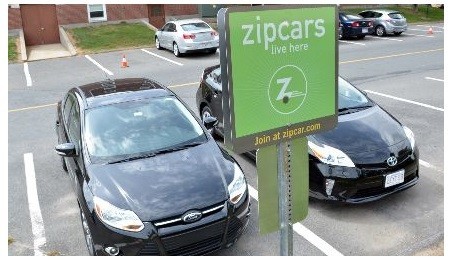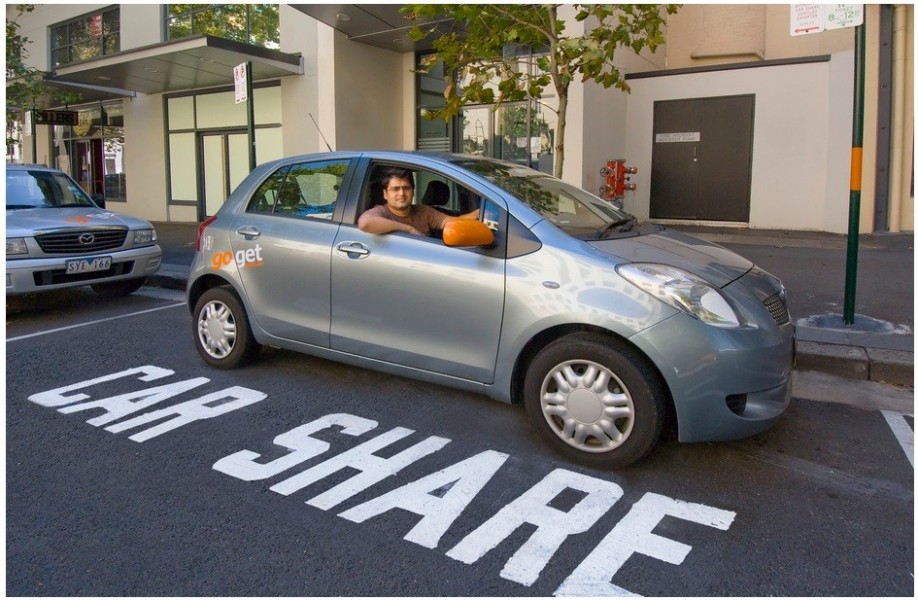Will We Own or Share Cars in the Future?
 Remember when you got your first car? It was a rush driving around TX, wasn't it? At age 16, I got an old beat-up hand me down of a car, but it was mine. The vehicle represented freedom and independence, and it made me feel like an adult. But, how do you think I would have felt if I had to share that car with the community? I probably wouldn't have liked it and I know my girlfriend wouldn't have been very impressed.
Remember when you got your first car? It was a rush driving around TX, wasn't it? At age 16, I got an old beat-up hand me down of a car, but it was mine. The vehicle represented freedom and independence, and it made me feel like an adult. But, how do you think I would have felt if I had to share that car with the community? I probably wouldn't have liked it and I know my girlfriend wouldn't have been very impressed.
For people who really love their cars, the concept of carsharing may not be attractive, but at Herb's Paint & Body #5 - Frisco, we love fixing cars. If car sharing becomes the norm, we'll fix those cars too.
More and more, consumers view car ownership as an expensive proposition, not to mention its impact on the planet. In almost every aspect of our lives, there is a movement afoot and it's called Collaborative Consumption, of which carsharing is a big part. If you think about, none of us actually ever own anything (we all rent) so maybe now is the right time to investigate this new age where access is preferred over ownership.
What is Carsharing?
Carsharing is a business model in which people rent cars for short periods of time and are normally charged by the hour. It's convenient for people who don't need a vehicle on a regular basis and covet what they call "occasional access." The organization renting the cars may be a commercial entity or the users may be organized as a private company, cooperative, public agency or non-profit.
Services include Autolib', GoCar, Zoom, OpenFleet, City Car Club, JustRide GoGet, Greenwheels, JustShareIt, Stadtmobil and Zipcar. In addition, conventional car rental companies have introduced their own car sharing services, including Hertz on Demand, Enterprise CarShare by Enterprise Rent-A-Car, Avis On Location by Avis, and U-Haul Car Share by U-Haul. Notable co-operatively owned carsharing organizations include Modo (car co-op) and Community CarShare. In addition, car manufacturers have also introduced their own carsharing services, including Daimler's Car2Go, BMW's DriveNow, Volkswagen's Quicar. 
Growing Fast
As of December 2012, there were an estimated 1.7 million carsharing members in 27 countries, including so-called peer-to-peer services, according to the Transportation Sustainability Research Center at U.C. Berkeley. Of these, 800,000 were car-sharing members in the United States. As of November 2014, the world's largest carsharing networks across North America and Europe are Zipcar with 767,000 members and 11,000 vehicles, and Car2Go with over 900,000 members and 12,000 cars.
We have witnessed carsharing firsthand here in Frisco and the phenomenon is growing throughout the state of TX, so it definitely looks like it's going to stay. If you're tired of all the expenses associated with car ownership, take a serious look at carsharing. For large families, it may not be a viable alternative, but for single people, couples and seniors, carsharing might be the perfection solution to an otherwise very costly proposition.
Sources: U.C. Berkeley, Baylor University Automotive Sciences and Bill Ford







 Remember when you got your first car? It was a rush driving around TX, wasn't it? At age 16, I got an old beat-up hand me down of a car, but it was mine. The vehicle represented freedom and independence, and it made me feel like an adult. But, how do you think I would have felt if I had to share that car with the community? I probably wouldn't have liked it and I know my girlfriend wouldn't have been very impressed.
Remember when you got your first car? It was a rush driving around TX, wasn't it? At age 16, I got an old beat-up hand me down of a car, but it was mine. The vehicle represented freedom and independence, and it made me feel like an adult. But, how do you think I would have felt if I had to share that car with the community? I probably wouldn't have liked it and I know my girlfriend wouldn't have been very impressed.
Social